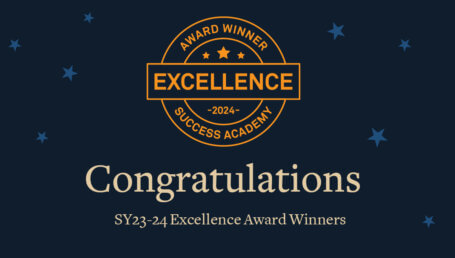
As the Director of Children’s Literature at Success Academy, I am deeply committed to ensuring that all children have access to high-quality fiction and nonfiction by and about people of color. I am constantly on the lookout for books about black history to add to our classroom libraries and share with scholars. So it might seem odd that I didn’t post a list of recommended books for Black History Month. Frankly, I didn’t post one because I believe that kids should read books about black history every month. And I believe that all general American history books (including textbooks, even though that’s not my expertise) should contain meaningful information about black history.
Black history is not separate from or in addition to American history—it IS American history. I’m afraid that Black History Month gives us an easy way out. Black History Month is predicated on the assumption that white history is the default history. It doesn’t force us to challenge our own assumptions.
Am I opposed to Black History Month? Of course not. It is extremely important to shine a spotlight on events, movements, and individuals that are often overlooked. Nor do I think we “don’t need” Black History Month anymore, a common argument among people who believe we’ve attained a post-racial society. Instead, I think it’s well past time to move beyond one month recognizing black history and make sure we fully integrate books about all Americans into all libraries all year long.
Black history is not just slavery and the Civil Rights Movement. It’s not only Rosa Parks, Jackie Robinson, and Martin Luther King, Jr. It’s Phillis Wheatley, Dave the Potter, Benjamin Banneker, Charles Drew, Sarah Rector, George Crum, Melba Liston, Matthew Henson, Bessie Coleman, Marian Anderson, Mae Jemison, the slaves who built the White House, the Harlem Hellfighters, the Tuskegee Airmen—and yes, there are children’s books about all of them!
Most scholars who attend Success Academy schools are black. Black children have the right to learn about their unique cultural heritage and their powerful history. They need to understand the systemic injustices and institutional racism that have affected black Americans through history, and they deserve to know about black Americans’ incredible agency and achievements. But all kids need to learn this history, just as all kids learn about George Washington and Benjamin Franklin. As our network grows to serve an increasingly diverse student body, we will continue to search for books that reflect this diversity. We owe it to our scholars to provide them with books that are mirrors in which they see themselves and books that are windows into other cultures and histories.
I don’t write books, or publish them, but I do something very powerful that every one of you can do, too: I buy books. All too often publishers and bookstores use an easy excuse for the lack of diversity in children’s books: publishers don’t produce a lot of books by and about people of color, and bookstores don’t stock the ones that do manage to get published, because those books “don’t sell.” That’s where you and I come in. Every time we ask for a book featuring a black American or purchase a book about black history, we’re sending a message: these books do sell. They are important—and not only in February.








